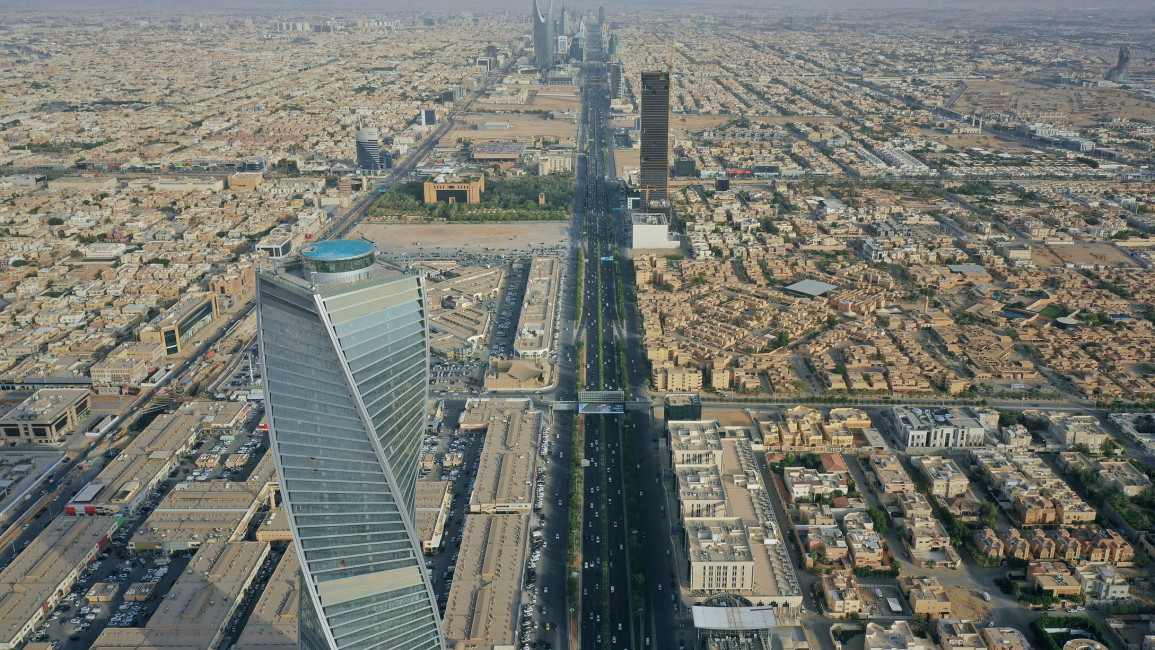Saudi Arabia for first time marks its founding, downplaying conservative roots
Saudi Arabia held celebrations on Tuesday to commemorate for the first time its foundation nearly 300 years ago, choosing a date that downplays the central role played by clerics from the ultra-conservative Wahhabi school of Islam.
The government lined up events that include musical performances on Saudi modern history, fireworks, drone shows and sound effects, with 3,500 performers taking part, state media reported.
The anniversary marks the day in 1727 when Mohammed bin Saud, founder of the first Saudi state, took over the emirate of Diriyah - a remote town which now lies on the northwest edge of the Saudi capital Riyadh.
That was about 18 years before what historians generally consider as the beginning of the Saudi state when bin Saud, a tribal leader, forged an alliance with Islamic preacher Mohammed ibn Abd al-Wahhab, whose purist doctrine is often referred to as Wahhabi Islam.
The agreement with the clergy boosted the legitimacy of the Al Saud rulers in exchange for lavish funding and influence granted to the conservative religious establishment over social issues, education and public morality - powers which have recently been curbed by the country's de facto leader.
Crown Prince Mohammed bin Salman has reined in the religious police, opened the country to concerts and cinemas, lifted a ban on women driving and eased the guardianship system, which gives men significant control over the lives of their female relatives.
A royal decree last month declared February 22 an official holiday, known as "Founding Day", to be commemorated every year in recognition of "the commencement of the reign of Imam Muhammad bin Saud" and marking the start of the first Saudi state.
"Mohammed ibn Abd al-Wahhab is being erased from Saudi history," said Kristin Diwan, senior resident scholar at the Arab Gulf States Institute in Washington.
"This is the new Saudi nationalism. It celebrates the Al Saud - tying the people directly to the royal family - and downplays the pivotal role played by religion in the founding of the state," Diwan said.
Saudi Arabia's Shura Council, an influential advisory body to the government, also approved last month a proposal to amend the law regulating the national flag and anthem. It was unclear if it will alter the content of the flag which includes the profession of Islamic faith: "There is no god but God; Muhammad is the prophet of God".
The kingdom already celebrates National Day on Sept. 23, which commemorates the victory of Al Saud over rival tribes from Hejaz region and the conquest of the two holy sites of Islam, Mecca and Medina, in 1925. The kingdom was subsequently named the kingdom of Saudi Arabia in 1932.
(Reuters)

![The brutal assault on Khan Younis has killed dozens and displaced thousands more [Getty]](/sites/default/files/styles/image_330x185/public/2024-07/GettyImages-2162526709.jpg?h=d3eda8cf&itok=n5N-o8p5)
![Members of the Algerian delegation threw roses into the Seine [Getty]](/sites/default/files/styles/image_330x185/public/2024-07/GettyImages-2162980872.jpg?h=199d8c1f&itok=h_3o_TOL)
